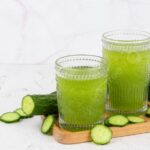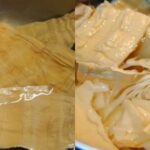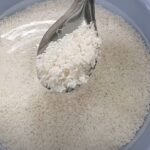1. Soaking/Bathing for Too Long
Prolonged soaking can strip the skin’s surface of its protective oils, leading to symptoms such as dry and itchy skin, wrinkles, and dehydration.
Additionally, those who soak for extended periods may experience fatigue and are at a higher risk of myocardial ischemia, oxygen deficiency, coronary artery spasms, blood clots, arrhythmias, and even sudden death.
The recommended bathing time is approximately 10-15 minutes. Even when enjoying a tub bath, it’s best not to exceed 20 minutes.

During winter, it’s best to avoid lengthy, overly hot baths, and frequent bathing. (Illustrative image)
2. Bathing with Water That’s Too Hot
Extremely hot water can destroy the surface oils on your skin, causing the capillaries to dilate and exacerbating dry skin issues.
Moreover, high shower water temperatures increase the heart’s workload, leading to myocardial ischemia and oxygen deficiency. In severe cases, it can even cause sudden death.
The normal human body temperature ranges from 36-37 degrees Celsius. Therefore, the water temperature in your shower can be slightly higher, around 38-40 degrees Celsius. For tub baths, the ideal water temperature is 35 degrees Celsius.
3. Over-scrubbing
In winter, the skin tends to become drier and more delicate. Using harsh cleansing products can damage the skin’s protective barrier, aggravating existing skin concerns.
In reality, bathing with clean water can remove up to 65% of skin impurities. When choosing a cleansing product, opt for those with weak acidity and non-irritating formulas.
If you bathe daily, use a weakly acidic cleanser to clean areas with skin folds, such as the hands, armpits, and buttocks. Afterward, rinse the rest of your body with water.
Furthermore, refrain from vigorously scrubbing your body in all cases. Doing so can damage the skin, compromise its protective barrier, and increase the risk of microbial infections.
It is advisable to apply moisturizer within three minutes after bathing while the skin is still damp. This helps lock in moisture, preventing dryness and promoting softer skin over time.
If you wait longer than three minutes to apply moisturizer, the hydration process becomes less effective.
4. Bathing Too Frequently
Contrary to popular belief, bathing multiple times a day does not equate to better hygiene. In fact, it can strip away the natural oils and protective flora that reside on the skin’s surface.
This can easily damage the stratum corneum (the outermost layer of the skin), leading to itchy skin and weakened skin immunity.
Moreover, vigorous scrubbing can injure the delicate epidermis, creating entry points for bacteria and fungi, which can result in skin infections.
Therefore, during the winter, it’s recommended to bathe every two to three days. On non-bathing days, you can simply wipe your body with a damp towel.
If the weather is warmer or your work environment causes you to perspire heavily, you can increase your bathing frequency accordingly. However, daily bathing is not necessary.
The Ultimate Guide to Preparing Dried Bamboo Shoots: Beyond Soaking, This Method Ensures Crisp Deliciousness and Removes Sulphur.
Măng is a versatile ingredient in Vietnamese cuisine, adding a unique flavor and texture to many dishes. However, it’s important to note that improper preparation can lead to the presence of toxins. With the right processing methods, măng can be a delicious and safe addition to your meals, offering a taste of traditional Vietnamese culture.








































